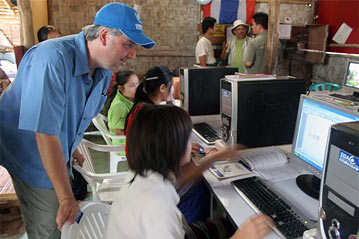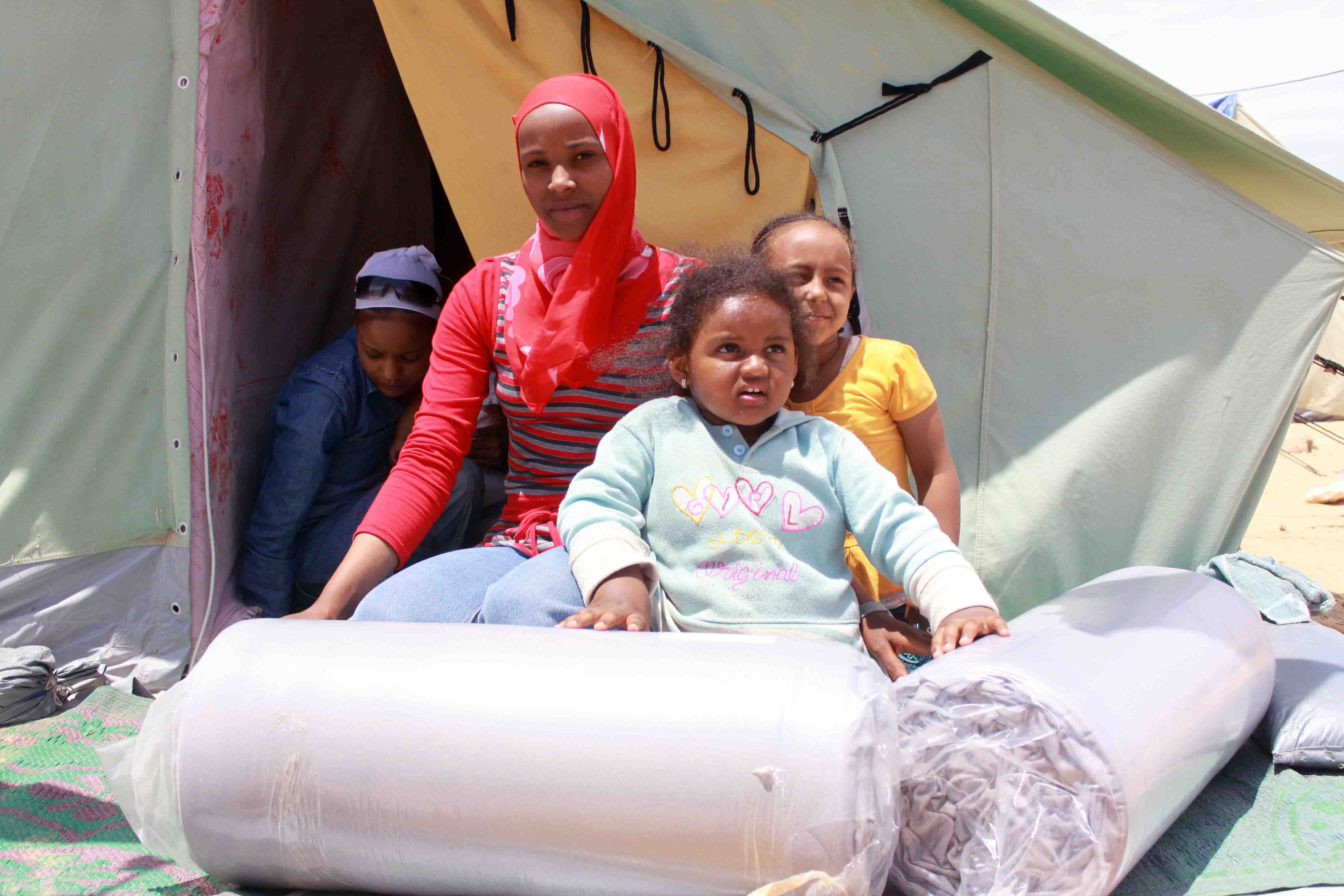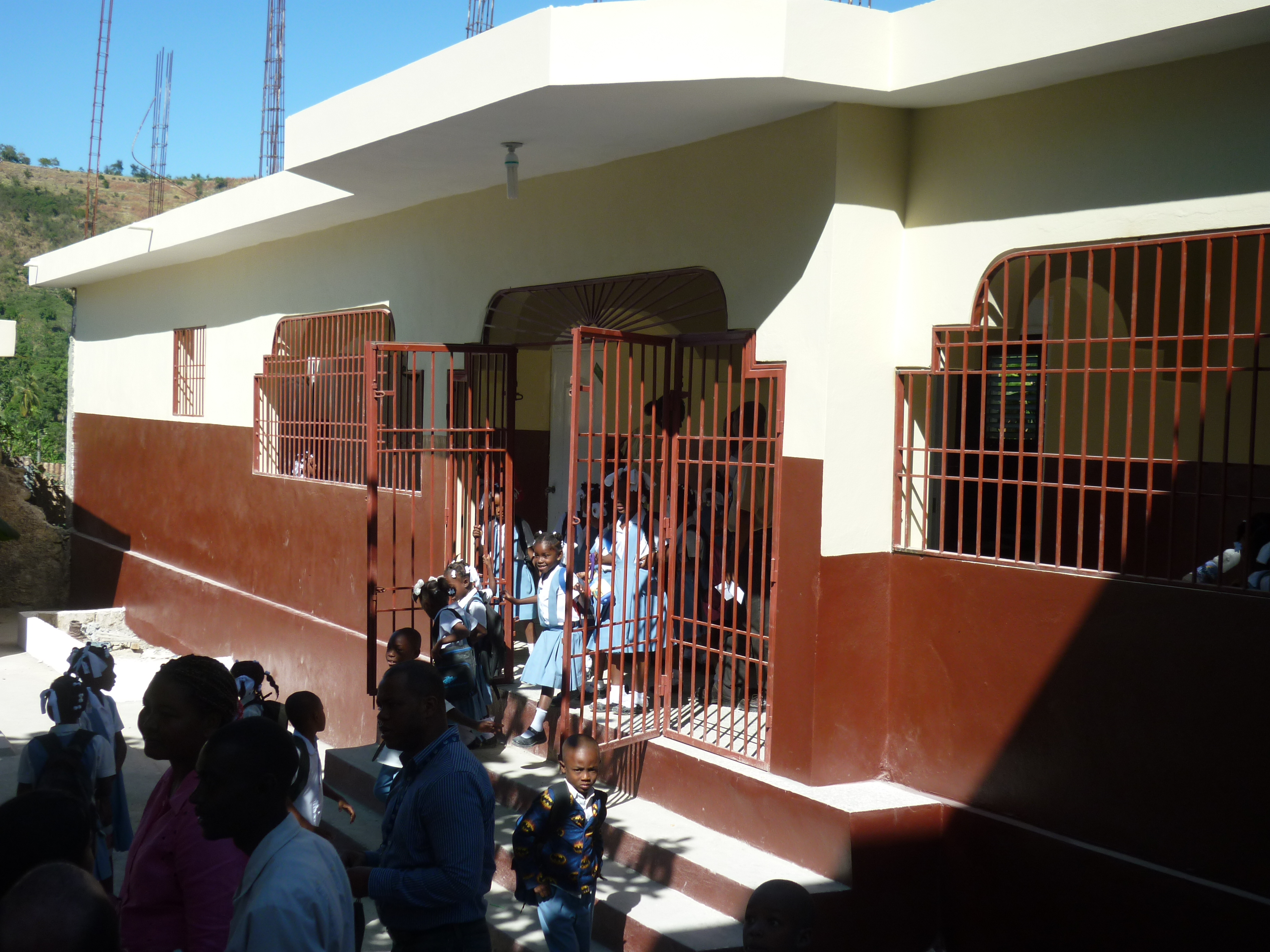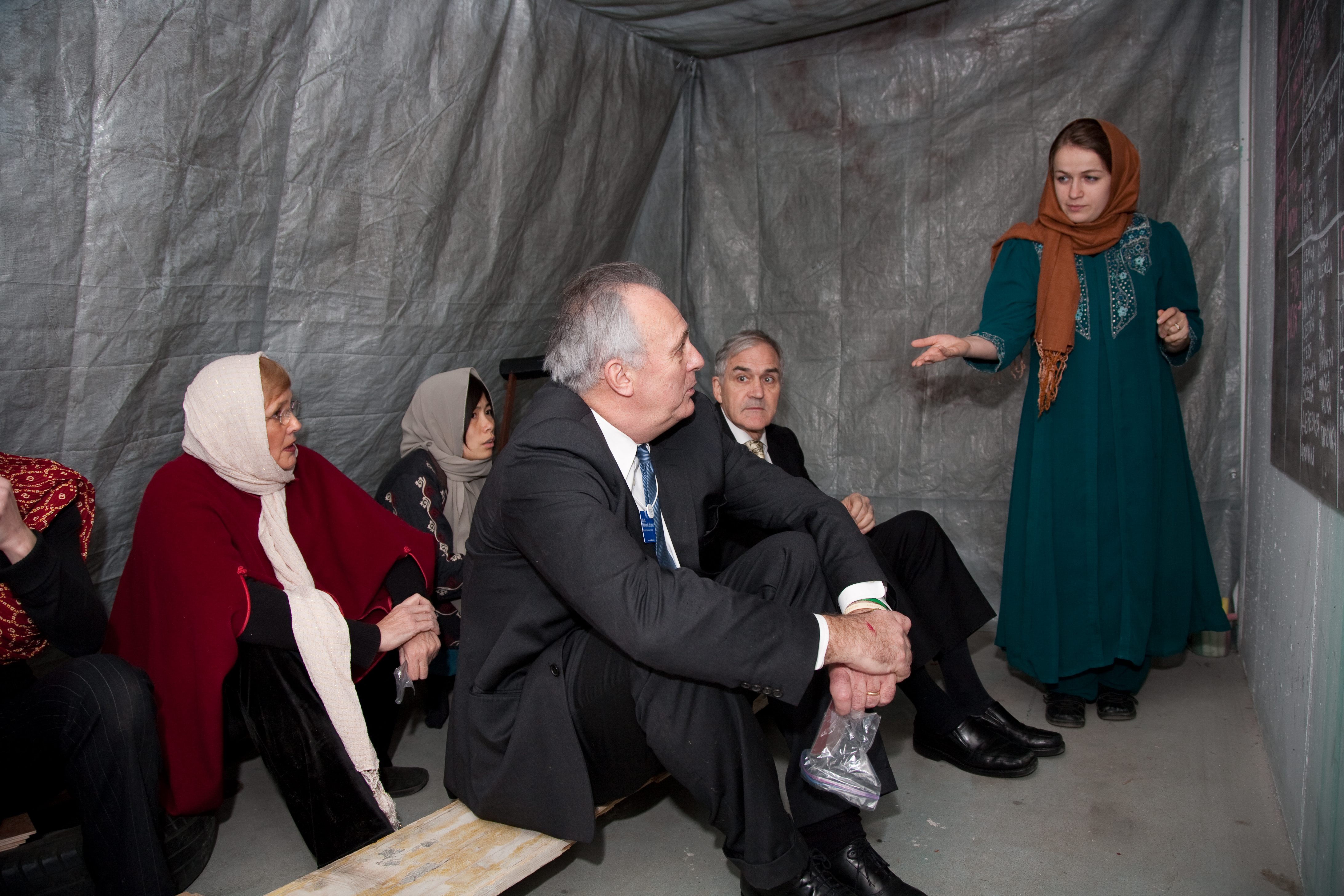Business leaders find innovative ways to help refugees in Thailand
Business leaders find innovative ways to help refugees in Thailand

BANGKOK, Thailand, May 4 (UNHCR) - Pee Htoo Htoo is a bright, young and articulate Karen refugee who is soon to resettle in the United States after years in Tham Hin refugee camp near the Thai-Myanmar border. He speaks fluent English and hopes to study at an American college, he told a group of visitors this week, but he's worried about finding a job to pay his way.
"Where are you going?," asked one of the visitors, David Arkless, senior vice-president of Manpower Inc., the world's largest employment agency.
Told that Htoo was going to Dallas, Arkless immediately responded: "We have many offices there." Within minutes the deal was sealed: "He's going to contact me by e-mail, and I am going to fix him up with one of our local offices to interview him and assess him and put him to work part-time while he goes to college," Arkless said.
When Arkless and three other members of UNHCR's Council of Business Leaders came to Thailand this week to visit two refugee camps, no one expected such immediate solutions. But as another Council member, Richard Golding of PricewaterhouseCoopers, said: "You have to come to the field and talk to the refugees to understand how we can help UNHCR help refugees."
The Council of Business Leaders - bringing together corporate heavyweights like Microsoft, Nike, Manpower, Merck and PricewaterhouseCoopers - was set up two years ago to advise UNHCR on how to be more business-like in carrying out its humanitarian work. It's important to apply "the rigours of the market place" to the UN refugee agency's mission to "unleash the potential of refugees to help themselves," said Nick van Praag, UNHCR's director of external relations.
In Ban Don Yang refugee camp, Jonathan Murray, worldwide technology officer for Microsoft, was interested to see refugees learning computer skills. In Tham Hin, the team visited a new computer centre with 24 state-of-the-art computers, provided with money raised by ninemillion.org.
That's a global campaign launched last year by UNHCR with the support of Nike and Microsoft. Ninemillion.org raises money from individuals to fund sports and education for refugee children.
Murray said he was pleasantly surprised to find an extensive education system within the camps, but was "quite shocked" to find out that internet access is not allowed within any of the nine refugee camps housing 140,000 Myanmar refugees along the Thai-Myanmar border.
"I do have a specific plea to the Thai government. Please reconsider the current policy to allow internet access to the camps so they can further expand capacity-building for refugees," Murray said.
Golding, who advises the UN system on reform, said he understood the Thai government's security concerns that forbid internet access at a sensitive border. But he said there was always an element of risk in any decisive action, and allowing internet access and allowing refugees to leave the camps to work would bring benefits to the Thai government and society that far outweigh the risks.
Arkless said he found the refugees to be "smart people, motivated people and they are willing to learn." His encounter with Htoo prompted a vision of help on a much larger scale - matching up every refugee who is resettled to a third country with a specific individual in a Manpower office who would help the refugee find a job in their new home country.
The Manpower executive is also fired up about the possibility of finding a way to let refugees work in local communities, something the Thai government has never allowed. He pledged that Manpower will dispatch two staffers this month to survey the employers around the camps and find out what skills are needed, so that refugees could learn them.
If permission could be obtained from the Thai government, he said he would like to set up skills training centres not only in the refugee camps, but also in nearby Thai communities. Not only would Thailand benefit, he argued, but the refugees would then be able to contribute to their own country if they go home, or to new countries if they are resettled.
Hannah Jones, vice-president of corporate responsibility for sportswear giant Nike, said she was still marvelling at the ripple effects of ninemillion.org and the council's visit last year to refugee camps in Africa.
"In less than one year, ninemillion.org has raised over US$2 million dollars, all of which is going to support education and sport in refugee camps around the world," she said. "Coming to a camp and seeing the real impact of the campaign is priceless. This is about impacting one refugee's life at a time."
By Kitty McKinsey in Bangkok, Thailand








